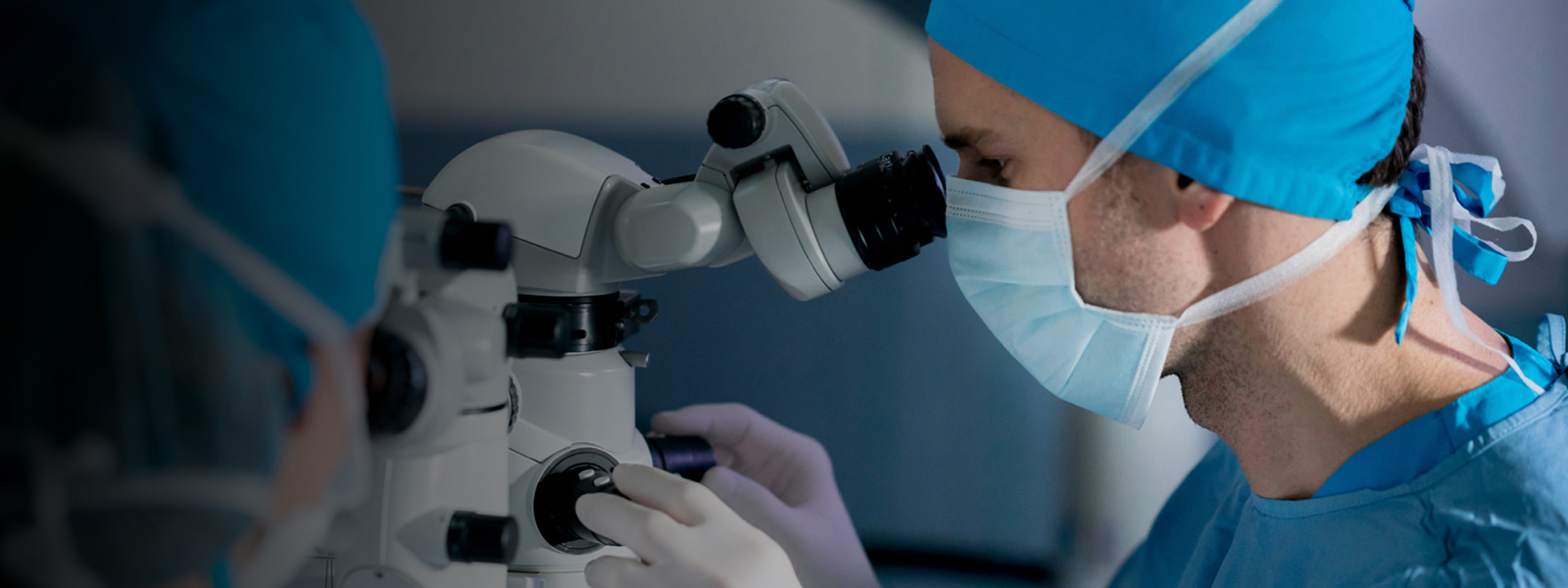 Corneal Transplants Corneal Transplants
Corneal Transplants Corneal Transplants With a faculty of 105 ophthalmologists, El Durrah provides a full range of
eye treatment services for the entire spectrum of eye conditions.
With a faculty of 105 ophthalmologists, El Durrah provides a full range of
eye treatment services for the entire spectrum of eye conditions.
Egypt’s Leading Eye Center
in Keratoplasty
Egypt’s Leading Eye Center
in Keratoplasty
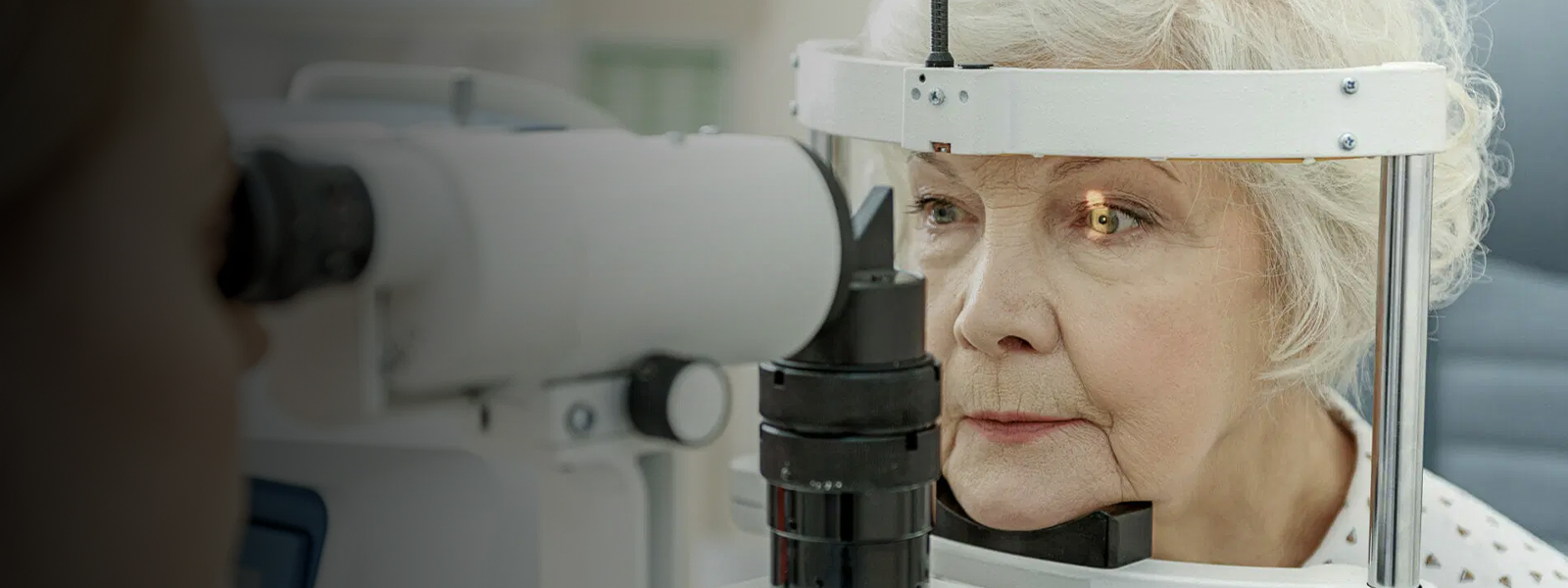 International Patients International Patients
International Patients International Patients The #1 choice for patients from +30 countries, enjoy your visit to
the land of the pharaohs and let us take care of all your medical needs.
The #1 choice for patients from +30 countries, enjoy your visit to
the land of the pharaohs and let us take care of all your medical needs.
Restoring the Gift of Sight
for Patients Worldwide
Restoring the Gift of Sight
for Patients Worldwide
Most Advanced Ophthalmology Technology
DSEC is a pioneer bringing ground-breaking ophthalmology technologies
Healing Hands
Finest and brightest medical experts who provide compassionate care using outstanding expertise and advanced technology
Best Clinical Outcomes
DSEC has consistently delivered best in class clinical outcomes

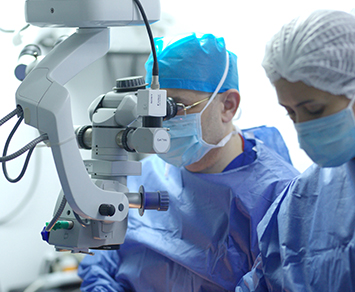
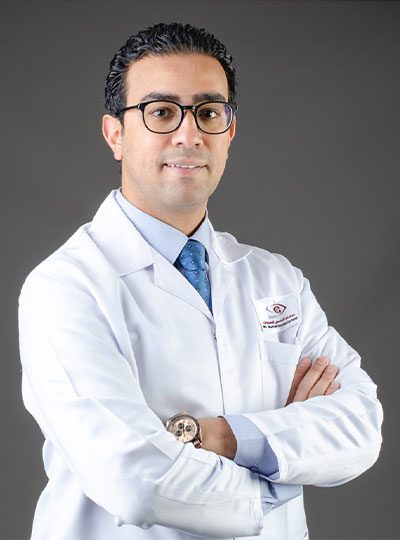
Years of Experience in Ophthalmology
Who We Are
El Durrah Specialized Eye Center (DSEC) commenced operation in 2007. DSEC spearheads and coordinates the provision of specialized ophthalmological services with emphasis on high quality and innovative treatment, with a faculty of 105 ophthalmologists to provide a full range of eye treatment from primary to tertiary levels for the entire spectrum of eye conditions.

Dr. Haytham Taher
Medical Director
Years
Subspecialties
Eye Surgeries
Corneal Transplants
Corneal Transplants
A cornea transplant is an operation to replace part or all the cornea with corneal tissue from a donor. This operation is also called keratoplasty.
Keratoplasty Types
Full Thickness Corneal Transplantation/Standard Penetrating Keratoplasty
- This type of corneal transplant is performed when both the front and back layers of the cornea are abnormal. It involves using Femto-laser or a blade to remove most of the cornea and a new human donor cornea is sutured into place.
- You will undergo a thorough ophthalmological examination including advanced imaging of your cornea using a Pentacam machine.

Deep Anterior Lamellar Keratoplasty
- When the problem in the cornea involves the anterior part of the cornea (epithelium and stroma), and the back layers of the cornea (Descemet’s membrane and endothelium) are healthy, a DALK can be done.
- This procedure is similar to a full thickness corneal transplant with the exception that the patient’s own back layers (Descemet’s membrane and endothelium) are not removed or replaced. The main advantage is less risk of transplant rejection. When DALK is attempted, there is a reasonable chance that the very thin back layers of the cornea tear during the surgery, at which point a full thickness corneal transplant is typically performed.

Descemet’s Stripping Endothelial Keratoplasty & Descemet’s Membrane Endothelial Keratoplasty
- These are procedures designed to replace corneal endothelial cells lost through genetic disease e.g. Fuchs’ Dystrophy or following trauma from previous surgery i.e. pseudophakic bullous keratopathy.
- DSEK and DMEK have important advantages over PK for conditions that cause endothelial failure; the eye is more stable, quicker to recover vision, more resistant to injury and the change in spectacle prescription is far lower in turn speeding the recovery of functional vision.
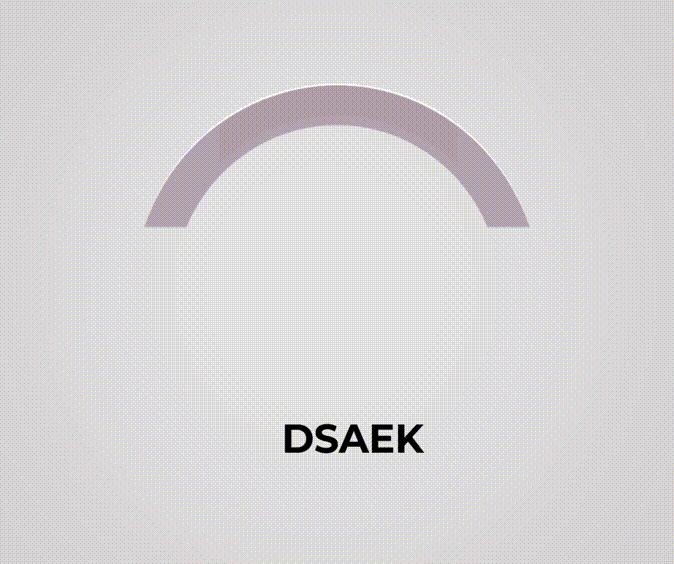
Testimonials
Serving Thousands of Patients Worldwide

Robert Adison
Professor
Rimply dummy text of the printing and tRimply dummy text of the printing and typesetting industry. psum has been the industry.

Robert Adison
Professor
Rimply dummy text of the printing and tRimply dummy text of the printing and typesetting industry. psum has been the industry.

Robert Adison
Professor
Rimply dummy text of the printing and tRimply dummy text of the printing and typesetting industry. psum has been the industry.
Frequently Asked Questions
- The degree of long-term success depends on a number of factors including the underlying cause of the cornea damage, surgical technique used, expertise of the surgeon, patient’s immune system acceptance of the donor transplant (organ rejection) and other factors
- Keep in mind that vision is usually blurred after surgery and will gradually improve over time. The length of time it takes to return to good vision depends on several factors, including the type of surgery performed. It may take up to 12 months for full vision to be achieved in patients who undergo full thickness tissue transplant. For endothelial transplants (DMEK and DSAEK), good vision is typically achieved within 3 months.
- An irregular cornea surface is expected following full thickness corneal transplant surgery. This imperfection in the curve of the cornea, called astigmatism, results in distorted vision. Correction with glasses,or additional vision correction may needed. Your surgeon will discuss the best options to meet your vision needs.
- You must not drive on the day of your cornea transplant. Someone must drive you home after surgery and bring you back for your follow-up visit.
- If you have good vision in the non-transplant eye, you can drive 24 hours after surgery. However, your surgeon may recommend waiting longer before driving.
- It may take a few days to a few weeks before you can return to work. It depends on your level of discomfort, your vision and what activities you perform at work. Jobs that require strenuous activity such as lifting may need more time off from work.
- Contact your surgeon immediately if you experience any signs of potential corneal rejection, including:
- Eye pain
- Eye redness
- Hazy or cloudy vision
- Sensitivity to light
- If you notice any other problems in your vision after cornea transplant, or you experience symptoms of infection, such eye watering, or pain, contact your surgeon.
- Corneal transplants are the most successful solid tissue transplant and rejection or failure rate is variable according to the pathology of corneal opacity
- The main complication after a successful corneal transplant is graft rejection, a condition in which your body does not accept the new cornea and damages it. You should be aware of early symptoms and signs of rejection:
- Increased tearing
- Redness of the eye
- Sudden pain and discomfort of the eye
- Sudden worsening in vision
Book An Appointment
International Patients
We understand that seeking medical care outside your home country can be a physically and emotionally exhausting experience, and we know that it can be a stressful ordeal. At DSEC, we strive to ensure that you not only feel at home during your stay but also to ensure you return to your country in good health
 Organizing Your Plan
Organizing Your Plan
Check with your current doctor, or contact us to determine if you are eligible to travel abroad in your current health and medical condition. o Bring along your important documents including Visa, immunization records, MRI scans and other medical document.
 24-Hour Response Time
24-Hour Response Time
We aim to respond to any inquiries within 24 hours. Please note that depending on the nature of the question, we may ask further clarifying questions to provide the most accurate response. This is also the case when your doctor may ask your medical records to communicate about available treatment options.

